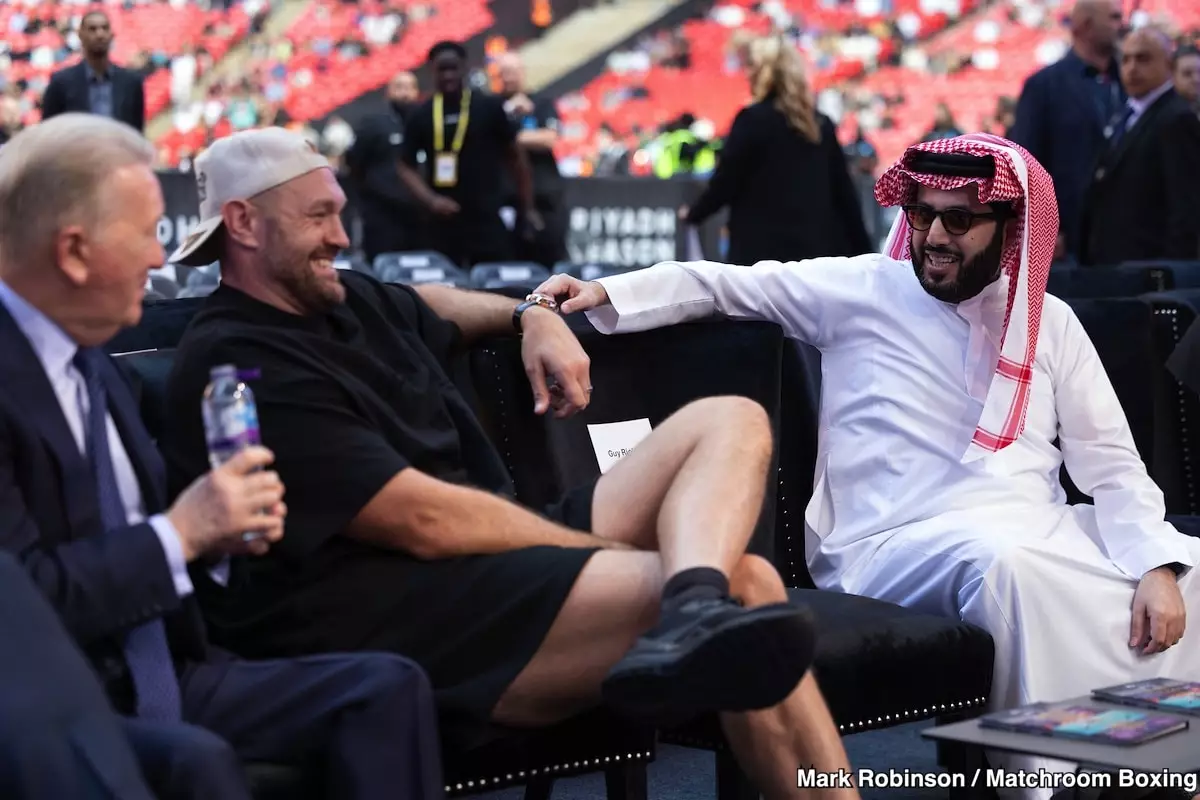As every athlete knows, there comes a moment when the body can no longer withstand the rigors of their chosen sport. This sentiment was recently echoed by former heavyweight champion Riddick Bowe, who candidly discussed Tyson Fury’s trajectory as a fighter. In a revealing interview with Pro Boxing Fans, Bowe expressed his belief that Fury may be reaching a critical juncture in his career—one where the desire to absorb punishment is dwindling. This article explores Bowe’s insights, the implications for Fury’s impending rematch with Oleksandr Usyk, and the broader trends in the heavyweight boxing landscape.
Bowe’s predictions carry weight, both due to his experience as a fighter and his unfiltered opinions. He anticipates that when Fury steps into the ring against Usyk on December 21, the former king of the heavyweight division may not have what it takes to secure victory. Bowe states bluntly, “Not Fury,” underscoring his conviction that Usyk will emerge victorious once again. Given Bowe’s own illustrious career, his perspective offers a unique understanding of the mental and physical toll boxing can have on an athlete, particularly as they age.
It’s essential to consider the specifics of Bowe’s statement: “He doesn’t have it no more.” This assertion fuels the ongoing debate about the longevity of boxers in a sport where physicality reigns supreme. Lack of motivation or an increased hesitance to engage can drastically impact a fighter’s performance. As Bowe recounts his own experiences at the end of his career, it raises the question: has Fury entered a similar phase where the will to exchange punches has fled?
Fury’s resilience has long been one of his defining characteristics. Throughout his career, he has demonstrated an uncanny ability to endure punishment and come back stronger. The past showdown with Usyk highlighted Fury’s willingness to absorb blows, especially during a grueling ninth round. However, as Berry points out, there are concerns about how much longer Fury can rely on his physical capabilities. Now at the age of 36, questions about whether he can continue to withstand significant punches become even more pressing.
Fury’s style has often favored a strategic rather than confrontational approach. But in a rematch against a tenacious fighter like Usyk, does Fury still possess the requisite desire and ability to engage? Bowe’s commentary draws attention to a pivotal aspect of boxing: the mental game. If Fury’s motivation is wavering, it may influence his performance in the ring and prove consequential as he faces Usyk again.
The psychological toll of boxing cannot be overstated, and Bowe speaks from experience. He hints at a weariness that combats the eventual readiness to retire from the sport. The question, then, extends beyond the physical limitations of Fury—he might be fit but internally exhausted. As Bowe implies, fighters must constantly contend with their relationship with pain and discomfort throughout their careers. The drive that once fueled a fighter suddenly becomes a weight that bears down heavily.
Thus, when pondering the outcome of the rematch, it’s not just about Fury’s physical strength; it’s also about his mental state and commitment. Will he find a renewed vigor, or has he become resigned to the notion that perhaps, it is simply time to step aside? This inner dialogue defines not just the fighter’s abilities but also the evolution of their legacy.
As the highly awaited rematch between Tyson Fury and Oleksandr Usyk approaches, Riddick Bowe’s insights resonate more than ever. His commentary underscores the delicate balance between a fighter’s physical capabilities and the psychological challenges they face. Only time will tell if Fury can draw on that inner strength or if, as Bowe suggests, we are witnessing the twilight of his formidable reign. Whatever the outcome, the boxing world will be watching closely as this chapter unfolds, marking the ongoing narrative of resilience, legacy, and the ultimate determination of champions.

